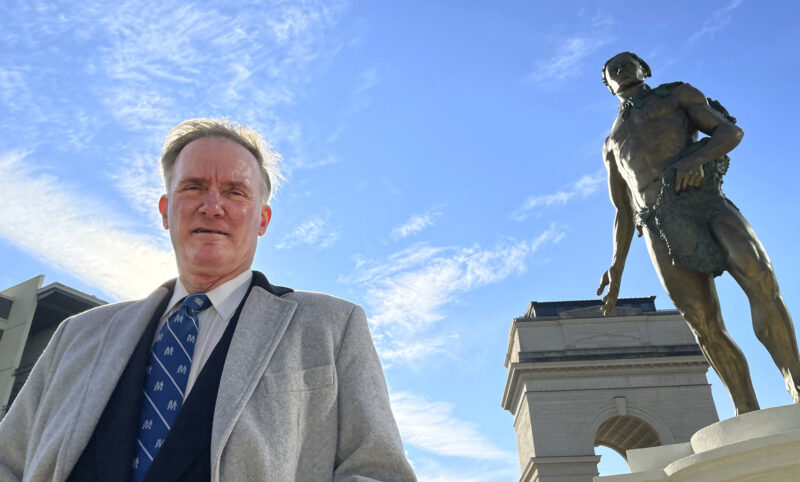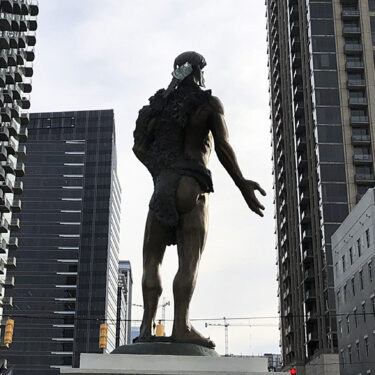Virtually hidden in plain sight, a civil rights statue unveiled in Atlanta showed a nearly naked “first Georgia Peacemaker” — a primitive and welcoming Muscogee chief. But Atlanta-based reporter Mike Warren found that plans for the bronze statue overlooked a dark legacy — the chief’s reported complicity in slavery and the genocide that forced Native Americans from the Southeast.
Warren suspected the Muscogee Nation hadn’t been consulted about the statue of Chief Tomochichi, and Atlanta’s Black leaders weren’t aware that the intended centerpiece of a statuary park honoring civil rights heroes would depict a Native American who produced slaves for colonists and who promised in Georgia’s founding treaty to return the heads of runaway Africans.
AP story prompts Atlanta leaders to reconsider its plans for a Native American statue the Muscogee people consider offensive. Councilman Michael Bond: "Making sure we have somebody who's a real historian, that's something we need to do." https://t.co/j6LOLIiupQ
— Michael Warren (@mwarrenap) February 11, 2022
Warren interviewed Muscogee historians who called the statue “disrespectful” and “incredibly inappropriate.” They said that not only would Tomochichi have been fully clothed,but that he was a traitor whom they blame for initiating centuries of genocide and land loss,and that creating a historically inaccurate sculpture of him today is deeply offensive. Warren then shared this with the park’s promoters,who were stunned.
City officials were also surprised when Warren’s deep reporting revealed that a committee responsible for ensuring the statue’s historical accuracy had never met. And after Warren showed how Georgia curriculum mandates the teaching of Tomochichi’s “positive citizenship traits,” such as “good sportsmanship,” leaders promised to work together to present the actual history. Atlanta Councilman Michael Julian Bond told the AP, “Facts are stubborn things.”

Warren’s initial story and his follow-up reaction piece played heavily with AP customers,and The Atlanta-Journal Constitution credited the “widely read story from the Associated Press” with upending the misguided plan. Other clients and competitors also cited AP,many using Warren’s photos of the $300,000 statue and its promoter.
For bringing to light a hidden historical record and starting a conversation that prompted Atlanta’s city council to rethink a statue that many found offensive, Warren is AP’s Best of the Week — Second Winner.
Visit AP.org to request a trial subscription to AP’s video,photo and text services.
For breaking news, visit apnews.com




